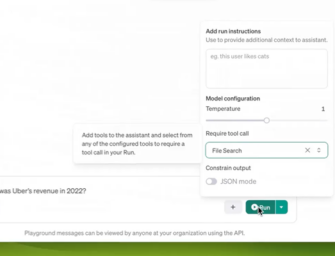Amazon Now Allows Alexa Skills for Kids
Amazon now allows Alexa skills for kids. Up until last Friday, Amazon would reject any skills that explicitly or implicitly were designed for children. The reason? Fear of running afoul of the Children’s Online Privacy Protection Act (COPPA). That law had clear restrictions pertaining to passing voice recordings of children across the cloud and maintaining them over time. Voice was viewed as a privacy concern. According to the Federal Trade Commission (FTC) you are dealing with personal information if you are collecting:
A photo, video, or audio file containing a child’s image or voice…
FTC updated the COPPA rules in June which included some clarification that “connected toys or other Internet of Things devices,” were included in the broad definition of “website or online service.” However, the same update also provided some guidance on how companies could provide services for users that may be under 13 years of age. The steps include:
- Post a Privacy Policy that Complies with COPPA
- Notify Parents Directly About Your Information Practices Before Collecting Personal Information From Their Kids
- Get Parents Verifiable Consent Before Collecting Personal Information From Their Kids.
Amazon Sets Up Notification and Verifiable Consent Process
Sara Perez from TechCrunch has an authoritative article on these changes so I will quote one section at length. I recommend you read the entire article here.
According to Amazon, the first time Echo users enable a ‘kid skill,’ Alexa will prompt you to provide parental permission via the Alexa companion app. The verification process will require parents and guardians to either enter a one-time password sent via SMS to their phone, or perform verification by credit card.
However, this parental consent will then apply to all kid skills, so parents will only have to complete the process once. While that’s not necessarily the appropriate way consent should be handled, it’s a savvy move on Amazon’s part. If a parent enables any of these highly visible and sure-to-be-popular kids’ voice skills, they’ll have effectively enabled consent for their kids to use Alexa as much as they want.
 I personally went through the process of enabling the Sesame Street skill on Alexa and can confirm the reporting by Ms. Perez. Even though I was an adult and a device owner attempting to enable the skill, the system assumed I was a child. Once in the Alexa app, I followed a flow that took me to nine separate screens. That’s a lot of friction. I used the credit card verification process. I was then able to play hide-and-seek with Elmo. My daughter would have loved that Alexa skill sixteen years ago. We had to settle for VHS and Tickle-me-Elmo. But, I digress.
I personally went through the process of enabling the Sesame Street skill on Alexa and can confirm the reporting by Ms. Perez. Even though I was an adult and a device owner attempting to enable the skill, the system assumed I was a child. Once in the Alexa app, I followed a flow that took me to nine separate screens. That’s a lot of friction. I used the credit card verification process. I was then able to play hide-and-seek with Elmo. My daughter would have loved that Alexa skill sixteen years ago. We had to settle for VHS and Tickle-me-Elmo. But, I digress.
I can also confirm that when I attempted to then play other children’s games newly released last week, I was not asked for an additional parental permission. I was able to access them directly. I didn’t even need to enable them. No friction.
Great News for Developers
This is very good news for developers for two reasons. First, there is now a clear path to build and receive certification for skills that either are designed for or are likely to appeal to children. Second, once the verifiable consent for child access to Alexa skills is confirmed by a household, there is no friction for use of additional skills. Since high profile skills like Sesame Street and Sponge Bob are likely to spur the parental consent process, other kid-oriented skills will be immediately available. The Alexa developer blog has two entries from last week worth reading if this is your focus. The first has some tips for designing skills for children and the second discusses how the Sesame Street skill with Elmo was developed.
One More Thing for Other Voice Assistants to Do
A final point is worth mentioning. Amazon now has a COPPA-compliant workflow for Alexa skills in place prior to the 2017 Holiday shopping season. The other platforms, notably Google Assistant, do not have this announced today and it doesn’t appear to be implemented (N.B. I have reached out to Google for comment on when this will be available). There are fewer games available on Google Assistant / Google Home than Alexa and none that are designed for younger children. That could be a difference-maker as parents decide this Holiday season which device will be the first smart speaker in the home. Google should have plenty of motivation to roll this feature out quickly. They already have a model to follow provided they can get cooperation from their in-house lawyers.









